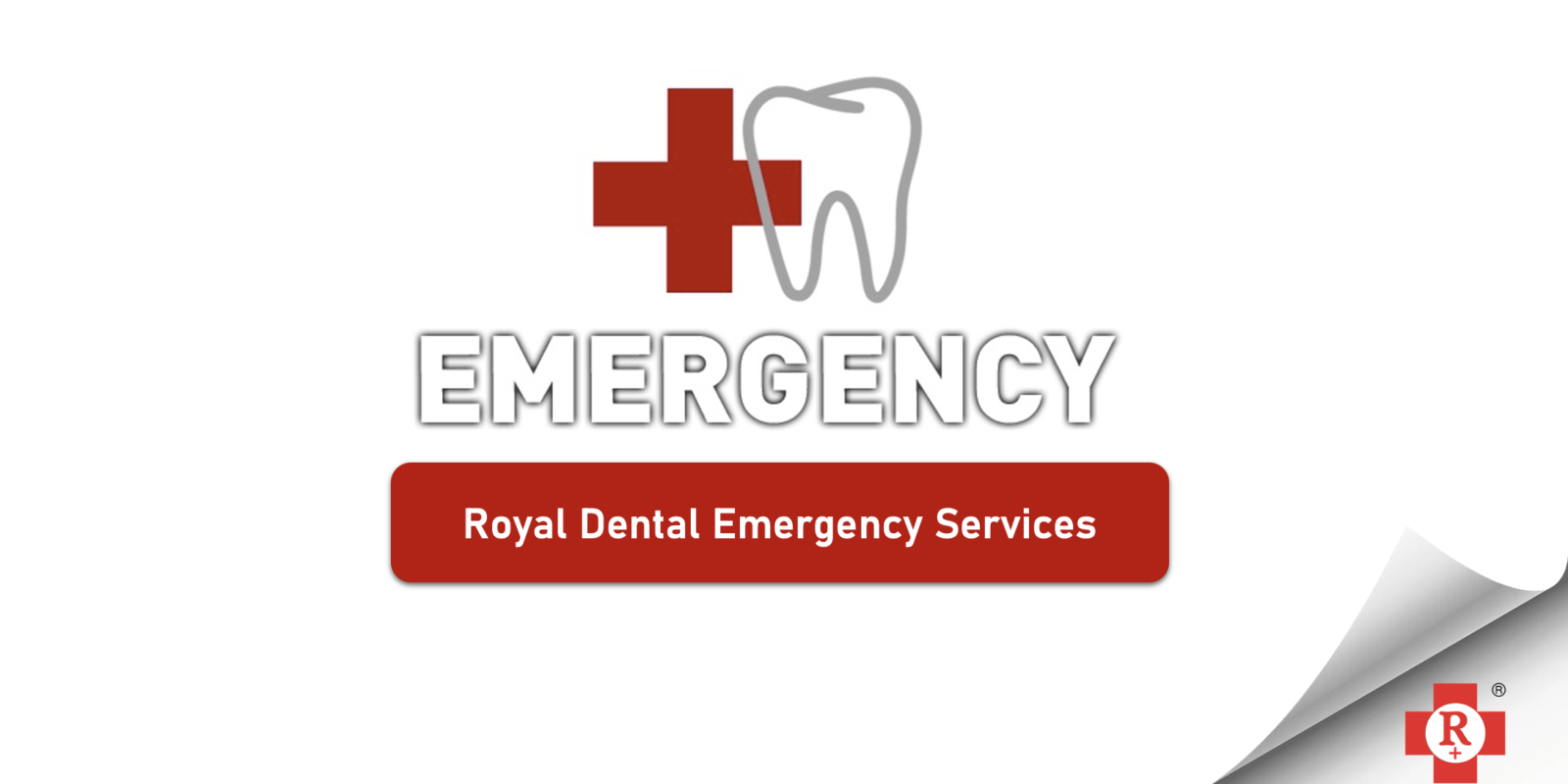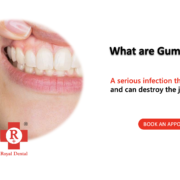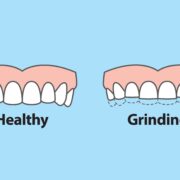Dental emergencies can be painful and traumatic. In India, the number of dental emergencies is on the rise, yet many are unaware of what constitutes a dental emergency and how to go about dealing with one. From extreme toothache to broken teeth, understanding what needs immediate medical attention is essential. They can be unpredictable and if not treated quickly enough, can lead to serious health complication ns. That is why it is important to be aware of the signs and symptoms of a dental emergency in India, and know when it is time to seek professional medical advice.
What is a Dental Emergency?
It is an urgent medical condition requiring immediate attention. It can involve any number of issues relating to the mouth, teeth, and gums. Common dental emergencies include severe toothache, broken or chipped teeth, abscesses, gum infections, and impacted wisdom teeth.
The most common signs and symptoms of a dental emergency include severe pain, swelling, difficulty breathing, fever, and redness in the affected area. It is important to seek medical attention as soon as possible for any of these symptoms, as they can quickly worsen and lead to serious health complications.
Common causes of dental emergencies in India
The most common causes of dental emergencies in India are poor oral hygiene and lack of regular dental check-ups. Poor oral hygiene leads to the buildup of plaque and bacteria in the mouth, which can cause gum disease and tooth decay. Not having regular dental check-ups can also increase the risk of developing cavities and other oral health issues.
Other common causes include trauma to the mouth, such as from a fall or a sports injury, as well as using hard objects to clean the teeth. Eating hard foods, such as nuts or hard candy, can also lead to dental emergencies.
Broken or chipped tooth: If you break or chip a tooth, rinse your mouth with warm saltwater and save any pieces of the tooth that you can. Apply a cold compress to your cheek to help reduce swelling, and see a dental professional as soon as possible.
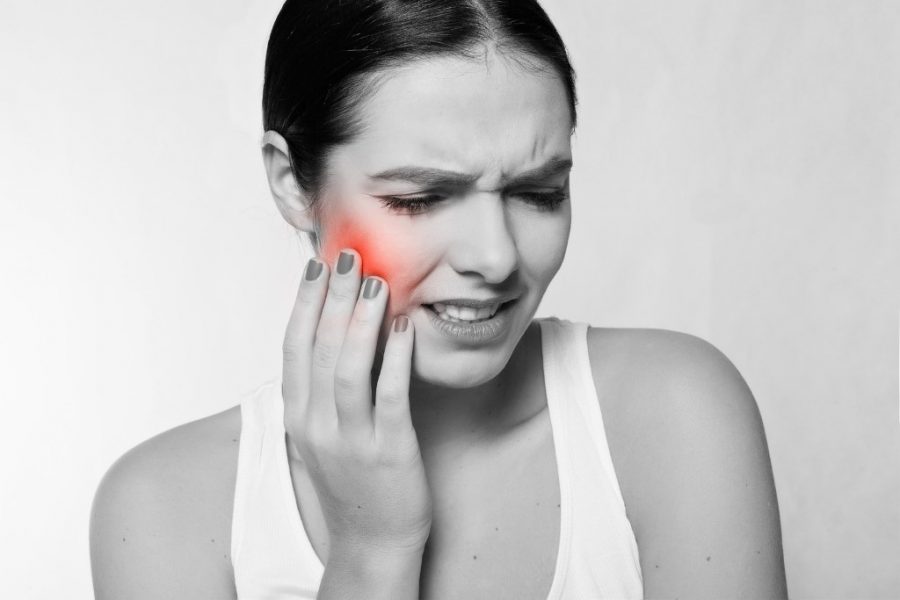
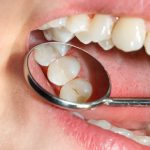

Toothache: If you experience a toothache, rinse your mouth with warm saltwater and use dental floss to remove any food particles or debris that may be causing the pain. You can also take over-the-counter pain relievers, such as ibuprofen, to help manage the pain. However, it’s important to see a dental professional as soon as possible to determine the underlying cause of the toothache.
Knocked-out tooth: If you knock out a tooth, rinse the tooth with water and try to place it back into the socket. If this is not possible, place the tooth in a container of milk or saline solution and see a dental professional immediately. Time is of the essence in this case, and quick action can sometimes save the tooth.
Lost filling or crown: If you lose a filling or crown, rinse your mouth with warm saltwater and use dental cement or sugar-free gum to temporarily fill the cavity. See a dental professional as soon as possible to have the filling or crown replaced.
Different Types of Dental Emergencies
The most common types of dental emergencies include severe toothache, broken or chipped teeth, abscesses, gum infections, and impacted wisdom teeth. Other types of dental emergencies include cracked or loose teeth, a foreign object stuck in the mouth, and jaw pain.
Severe toothache is usually caused by a cavity or infection in the tooth. It is often accompanied by swelling, pain when biting, and difficulty opening the mouth.
Broken or chipped teeth can be caused by trauma or hard objects being used to clean the teeth. It is important to seek medical attention as soon as possible, as a chipped tooth can quickly become infected.
Abscesses are caused by an infection in the root of the tooth. These infections can be extremely painful and can quickly spread to other parts of the body, so they should be treated as soon as possible.
Gum infection is caused by bacteria in the mouth, and can lead to bleeding, swelling, and bad breath.
Impacted wisdom teeth can cause pain and swelling in the jaw, as well as difficulty opening the mouth.
How to prevent dental emergencies?
Preventing dental emergencies is key to avoiding pain and health complications. To prevent them, it is important to practice good oral hygiene, which includes brushing and flossing twice daily and using mouthwash. It is also important to have regular dental check-ups and to avoid using hard objects to clean the teeth.
If you have any existing dental issues, it is important to have them treated as soon as possible to prevent any further complications. Eating a balanced diet and avoiding hard or sticky foods can also help to prevent dental emergencies.
It is also important to wear a mouth guard when playing sports or engaging in any activity that could lead to trauma to the mouth.
First aid for Dental Emergency
If you are experiencing a dental emergency, it is important to seek medical attention as soon as possible. However, there are some first-aid measures you can take while waiting for medical attention.
Incase you are experiencing a toothache, you can take over-the-counter painkillers such as ibuprofen or paracetamol. You can also use a cold compress to reduce swelling and pain.
If you have a broken or chipped tooth, you can use a cold compress to reduce the pain. You should also rinse your mouth with warm salt water to reduce swelling.
If you have an abscess, you should rinse your mouth with warm salt water to reduce swelling and relieve pain.
Incase you have impacted wisdom teeth, you can use a cold compress to reduce the pain and swelling.
It is important to note that these measures are only for temporary relief, and seeking professional medical advice is the best course of action when dealing with a dental emergency.
When to seek professional medical advice?
If you are experiencing any of the signs and symptoms of a dental emergency, it is important to seek professional medical advice as soon as possible. Do not wait until the pain is unbearable or the condition has worsened. Seeking medical attention as soon as possible will help to prevent further health complications.
Dental emergency services in India
In India, there are several dental emergency services available. Most hospitals and clinics offer emergency dental services, and there are also several dedicated services available. These services provide 24-hour access to professional medical advice and treatment. It is important to note that some dental emergency services may require you to pay out of pocket, so it is important to check with your health insurance provider before seeking treatment.
Tips for managing dental emergencies
In any dental emergency, it’s important to stay calm and seek help from a dental professional as soon as possible. Many dental professionals in India offer emergency dental services and can provide prompt treatment for a variety of dental emergencies.
Stay calm: Dental emergencies can be frightening and painful, but it’s important to try to stay calm. Panicking can make the situation worse and may make it harder to manage the emergency.
Stop any bleeding: If you are bleeding from the mouth, apply pressure to the affected area with a clean cloth or gauze pad until the bleeding stops.
Use cold compresses: If you have swelling or pain, apply a cold compress to your cheek for 10-20 minutes at a time to help reduce swelling and manage pain.
Take over-the-counter pain relievers: Over-the-counter pain relievers, such as ibuprofen or acetaminophen, can help manage pain until you can see a dental professional. Be sure to follow the recommended dosage instructions and do not exceed the recommended dose.
Avoid hard or crunchy foods: If you have a broken or chipped tooth, avoid eating hard or crunchy foods that could make the injury worse. Stick to soft foods and liquids until you can see a dental professional.
Use dental wax: If you have a broken or loose wire from braces, use dental wax to cover the wire and prevent it from poking your mouth.
Conclusion
Dental emergencies can be painful and unpredictable, and if not treated quickly enough, can lead to serious health complications. That is why it is important to be aware of the signs and symptoms of a dental emergency in India, and know when it is time to seek professional medical advice. Don’t wait until it’s too late; understanding dental emergencies in India is key to preventing further health complications.
Dr. Arun Chamria established Royal Dental Clinics in India in 1983. Royal Dental Implant has been a leader in the field for more than three decades, working to provide “Dentistry with genuine Smiles.” Our founders’ contributions to “Same Day Fixed Teeth” and “Immediate Loading of Implants” have earned us recognition on a global scale.

